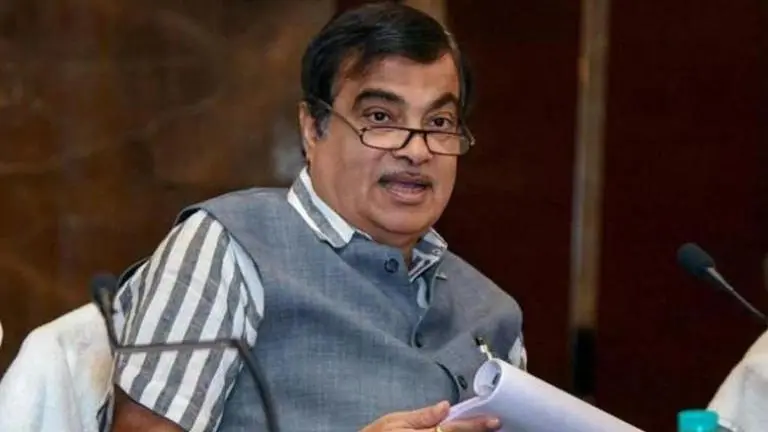Updated 8 September 2019 at 15:30 IST
Stringent traffic rules aim at curbing road accidents: Gadkari
Intelligent traffic system does not discriminate between violators of law whether it is a central minister, chief minister, bureaucrat or a journalist.
- India News
- 5 min read

Intelligent traffic system does not discriminate between violators of law whether it is a central minister, chief minister, bureaucrat or a journalist, Union Minister Nitin Gadkari said on Sunday while asserting hefty fines for traffic rule violations are aimed at curbing road accidents.
He also stressed that there should be no fear of hefty "challans" if someone is abiding by the law.
Post imposition of the Motor Vehicles (Amendment) Act, 2019, from September 1, hefty challans for traffic rules violations by the police have hit the headlines.
"Why is this fear of challans if one is following traffic rules. People should rather be happy that India's roads will become safer like abroad where people strictly abide by traffic norms. Is human life not precious," Road Transport and Highways Minister Nitin Gadkari told PTI in an interview.
Gadkari said stringent rules were "much needed" as people had taken traffic laws very lightly and there was neither fear nor respect for law.
Advertisement
"I am sensitive to this issue. Ask the family members who have lost someone near and dear in road accidents. 65 per cent of the road accidents victims are in the age bracket of 18 to 35 years, ask their families how they feel. I too am an accident victim and it is a well-thought-of step with consent from almost all political parties whether Congress, Trinamool or TRS," he said.
He said there are people who have not even been once fined as they follow traffic norms asking why others cannot emulate them.
Advertisement
Asked there have been multiple instances of hefty penalties where challans issued surpassed the cost of the vehicle, the minister said they were slapped multiple fines on account of multiple offences and instances had come to his notice where offenders lacked licence, pollution clearance, insurance etc.
"Intelligent traffic system does not discriminate. If you violate the law, you will have to pay penalty whether you are central minister, Chief Minister, bureaucrat or a journalist. There have been instances in my knowledge where CMs and others have been slapped with challans."
He appealed to the people to use the digital platforms like DigiLocker or mParivahan to carry Driving Licence, Registration Certificate or other documents in 'electronic form' which are valid under the Motor Vehicles Act, 1988, and present them to traffic police if asked.
These electronic records available on DigiLocker or mParivahan are deemed to be legally recognised at par with the original documents as per the provisions of the Information Technology Act and the Motor Vehicles Act. As per the Motor Act, the owner/driver has to produce the documents -- licence or certificate of registration etc to the authority on demand.
About states, he said that all the states are on board and have started implementing the new provisions and Tamil Nadu could play a role model as implementation has resulted in 28 per cent drop in accidents in the state.
India accounts for 5 lakh road accidents annually, one of the highest in the globe in which 1.5 lakh people die and another 3 lakh are crippled.
The minister said the loss to the GDP was 2 per cent due to loss of lives in road accidents
Asked about poor infrastructure in some parts, Gadkari said the new Act has provisions of fine on contractors in case of potholes and penalty was higher in case of offences committed by implementing authorities.
The minister said that NHAI has completed 70 per cent of the work pertaining to fixing of 786 accidental spots at a cost of about Rs 12,000 crore. In addition, states have been asked to identify black spots which will be corrected at a cost of about Rs 14,000 crore.
The legislation provides for stricter punishment for various traffic-related offences as well as higher penalties, including compensation of Rs 5 lakh for death and Rs 2.5 lakh for grievous injury in a motor vehicle accident case.
The Act provides for a penalty of Rs 10,000 for not giving way to emergency vehicles and Rs 10,000 for driving despite disqualification.
Penalty for dangerous driving has been increased to Rs 5,000 from Rs 1,000, while drunken driving under the new law attracts a fine of Rs 10,000.
Penalties for over-speeding range from Rs 1,000- 2,000.
Driving without insurance is punishable with Rs 2,000 fine while driving without a helmet will attract Rs 1,000 penalty and 3-month suspension of licence.
Also, the guardian/owner will be deemed guilty in case of road offence by juveniles, while registration of the vehicle will be cancelled.
Traffic violations now attract a penalty of Rs 500 in place of Rs 100 earlier, while disobedience of orders of authorities will attract a minimum penalty of Rs 2,000 in place of Rs 500 earlier.
Cab-aggregators violating licensing conditions will be charged a sum of up to Rs 1 lakh, while overloading of vehicles would attract a penalty of Rs 20,000.
Penalty for unauthorised use of vehicles without a licence has been fixed at Rs 5,000 while those driving without a licence will have to shell out the same amount and those found driving despite disqualification would be fined Rs 10,000.
The penalties are based on the recommendations of transport ministers from 18 states, which were vetted by a standing committee of Parliament.
Published By : Press Trust Of India
Published On: 8 September 2019 at 14:56 IST
